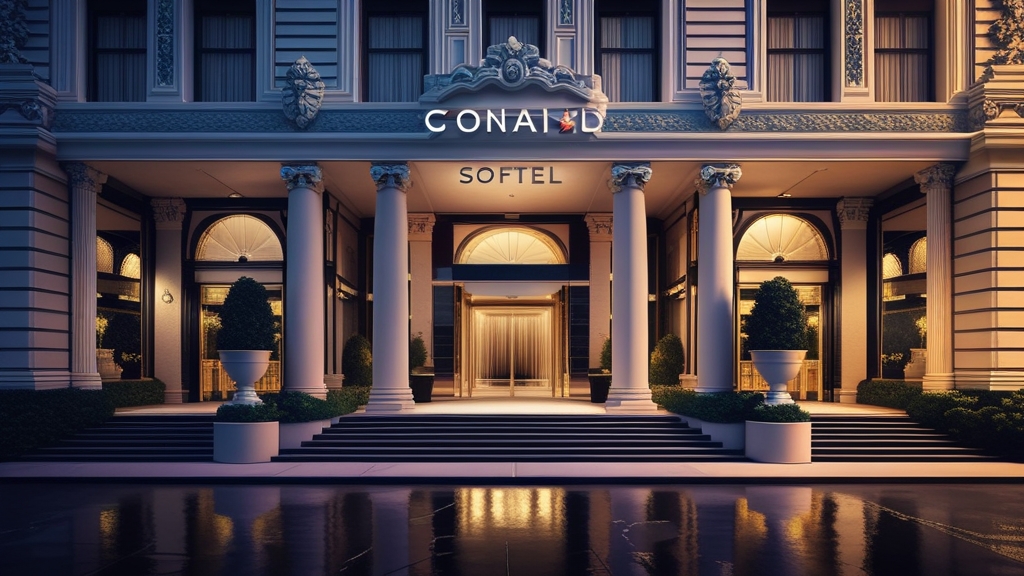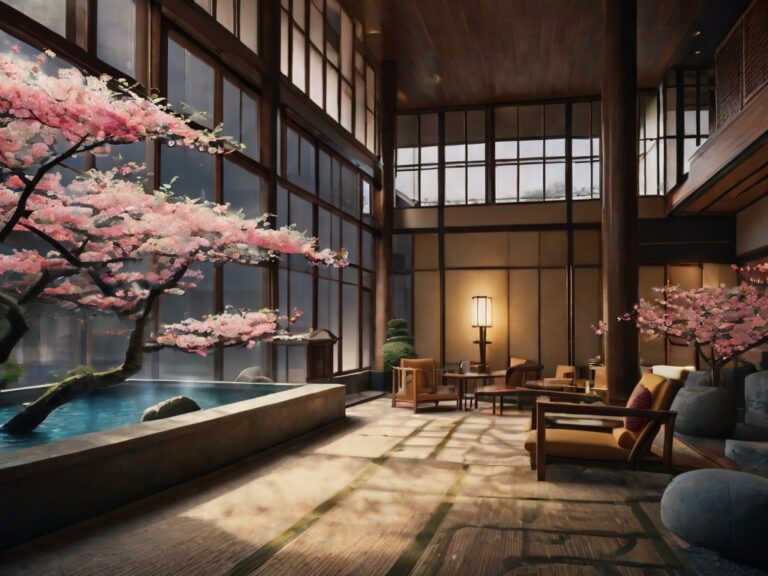Sofitel Shuts Down: What This Means for Luxury Hospitality
As the world slowly recovers from the devastating impacts of the global pandemic, we witness a heartbreaking chapter unfold in the luxury hospitality sector: Sofitel has shut down its operations. This isn’t just a business decision; it sends shockwaves through the entire industry and leaves us pondering what it truly means for luxury hospitality moving forward. With its trademark elegance and unparalleled service, Sofitel was more than just a hotel; it was a sanctuary that stood as a testament to the finer things in life.
What does this monumental change signal for travelers and businesses alike?
The Emotional Impact of Sofitel’s Closure
The immediate response is an emotional one. For countless travelers, Sofitel represented a promise of luxury and comfort, a space where guests could escape the mundane realities of life. The picturesque views of manicured landscapes and the exquisite tastes of gourmet cuisine set it apart. But why does this matter on a larger scale?
– The closure of such an esteemed establishment creates a void that extends beyond just its physical presence. It affects:
– **Luxury travelers** who seek out premium experiences.
– **Local economies** that thrive on tourism and high-end clientele.
– **Hospitality workers** who have lost their jobs and the community they built around this establishment.
If we stop to think about this *unfolding tragedy*, it becomes evident: luxury isn’t just about opulence; it’s about community, connection, and unforgettable experiences.
Understanding the Root Causes of Sofitel’s Closure
Before rushing to conclusions, let’s explore the nuanced factors contributing to this pivotal moment in luxury hospitality. Sofitel’s shutdown can be attributed to a confluence of challenges such as:
– **Economic Uncertainty**: The lingering effects of global economic turmoil, exacerbated by the pandemic, have created unpredictable financial landscapes.
– **Changing Consumer Behavior**: As priorities shift towards more sustainable and local experiences, traditional luxury model struggles to keep pace.
– **Increased Competition**: New players with fresh models have emerged, capturing market share that once belonged to legacy brands like Sofitel.
Never has there been a moment where adaptability and innovation in luxury hospitality are more crucial. How will other luxury establishments react to this seismic shift? Will they double down on opulence, or will they pivot towards a more experiential model?
The Shift in Luxury Hospitality: What Lies Ahead?
In light of Sofitel’s closure, the question looms: What does this mean for the future of luxury hospitality? It’s impossible to predict every nuance and turn that this journey will take, but certain trends are beginning to emerge that could redefine the landscape of luxury lodging.
1. The Rise of Experiential Travel
Travelers today seek authenticity and experience over mere accommodation. Instead of a luxurious suite, they prefer to engage in cultural explorations. Some key elements of this trend include:
- Authentic Local Experiences: Tourists want to immerse themselves in local cultures, engage with artisans, and participate in community events.
- Curated Offerings: Luxury hotels may find success in offering personalized, unique experiences designed specifically around the interests of guests.
- Sustainability: With the growing emphasis on environmental conservation, the demand for eco-friendly stays is likely to surge, driving establishments to rethink their operational practices.
Hotels that embrace these evolving expectations will not only survive but flourish in the new hospitality era.
2. Increased Importance of Technology
The pandemic nudged many industries toward digital transformation, and luxury hospitality is no exception. How might hotels adapt?
– **Contactless Services**: From check-in to room service, the increasingly popular contactless options streamline guest experiences while enhancing safety.
– **Smart Room Features**: Integration of technology, such as IoT-enabled devices and AI, allows for personalized in-room experiences that cater to individual preferences.
– **Virtual Reality**: Hotels are exploring virtual reality to give potential guests an interactive sneak peek of what awaits them, making the decision to stay an easy one.
Technology is no longer an option; it’s a prerequisite for success in this new age of luxury hospitality.
3. A Renewed Focus on Wellness and Self-Care
In a world where stress and anxiety have become commonplace, luxury travelers are prioritizing wellbeing more than ever. For many, travel serves as an avenue for relaxation and self-care. Hotels that incorporate pivotal wellness elements can create unparalleled experiences, including:
- Spas and Retreats: Offering holistic treatments and wellness programs that cater to both body and mind.
- Mindfulness Activities: Integrating yoga classes, meditation sessions, and nature walks that promote inner peace.
- Customized Nutrition: Menus that accommodate dietary restrictions while still offering gourmet flavors can enhance guest experiences.
The landscapes of luxury hospitality must evolve to include these contemplative elements.
Challenges Facing Other Luxury Brands
While Sofitel’s closure highlights the potential for change in the industry, it also serves as a cautionary tale for other luxury brands. How are they positioning themselves to adapt and thrive in an ever-changing environment?
Reevaluating Brand Positioning
With changing consumer expectations, luxury brands must take a long, hard look at their identity. Are they resonating with the modern traveler, or are they stuck in the past?
– Market Research is vital. Understanding what luxury means to today’s travelers sets the foundation for successful brand reinvention.
– Customer Engagement must evolve. Feedback loops with guests will help brands align their services with what people genuinely desire.
Establishing a genuine connection fosters loyalty and gives brands a competitive edge in a congested market.
The Role of Sustainable Practices
While not a novel concept, sustainability has gained traction and must now be integrated into every luxury brand’s mission. Sofitel’s departure shows that ignoring this responsibility could have dire consequences. Simple shifts to sustainable practices include:
- Reducing Waste: Implementing eco-friendly initiatives can not only decrease costs but build brand reputation among environmentally conscious travelers.
- Building Green: Investing in sustainable infrastructure designs tells a story of a commitment to the environment.
- Community Involvement: Engaging in local partnerships and supporting neighborhood initiatives enhances credibility and fosters goodwill.
The journey toward sustainability leads to greater resilience and ultimately lasting success.
Potential Opportunities in the Wake of Closure
Sofitel’s closure doesn’t merely signify a loss—it offers brands an opportunity to reflect on their offerings and innovate. While the challenges are evident, there are abundant opportunities which, if acted upon, could pave the way for better experiences.
Exploring Niche Markets
In an age of specialization, it’s crucial for brands to carve their own niches. Discovering specific themes that resonate with affluent travelers can set a luxury hotel apart from the rest. Here are some suggestions:
- Eco-Luxury: A fusion of luxury hospitality and sustainable practices could attract a conscientious client base.
- Cultural Retreats: Collaborating with local artists for themed experiences can provide guests with an authentic taste of culture.
- Wellness Sanctuaries: Designing hotels solely focused on wellness and relaxation can draw in health-conscious travelers.
Finding these niche markets can serve as a lifeline amidst the turbulence of the industry.
Reimagining Guest Experience
The future may belong to properties that focus on reimagining the guest experience. Capitalizing on luxury’s changing paradigms ensures relevancy while enhancing appreciation for these unique establishments. A few suggestions for designing a memorable stay include:
– **Personalized Itineraries**: Crafting itineraries tailored specifically to individual guest preferences showcases a commitment to an exceptional experience, fostering loyalty.
– **Unique Events**: Hosting curated events—be it wine tastings, art exhibitions, or culinary classes—can engage the community and create a buzz around the establishment.
– **Collaborative Spaces**: Creating multi-functional spaces that cater to both leisure and business travelers enhances versatility and attracts a more extensive clientele.
In a world that craves authenticity, delivering true value is the key to future success.
Conclusion: A Call to Action
As we reflect on the closing of Sofitel, it’s not merely about mourning the loss of a luxurious establishment. Rather, it’s an invitation for the entire luxury hospitality industry to re-evaluate, innovate, and evolve.
The next chapter of luxury hospitality holds immense promise. So, let’s engage in the conversation—what are your thoughts on the state of luxury hospitality after Sofitel’s closure? Have you noticed different trends in the travel sector? Share your insights in the comments below; your voice matters as we navigate this complex landscape together. Here’s to cherishing the memories while we anticipate an exciting future!


